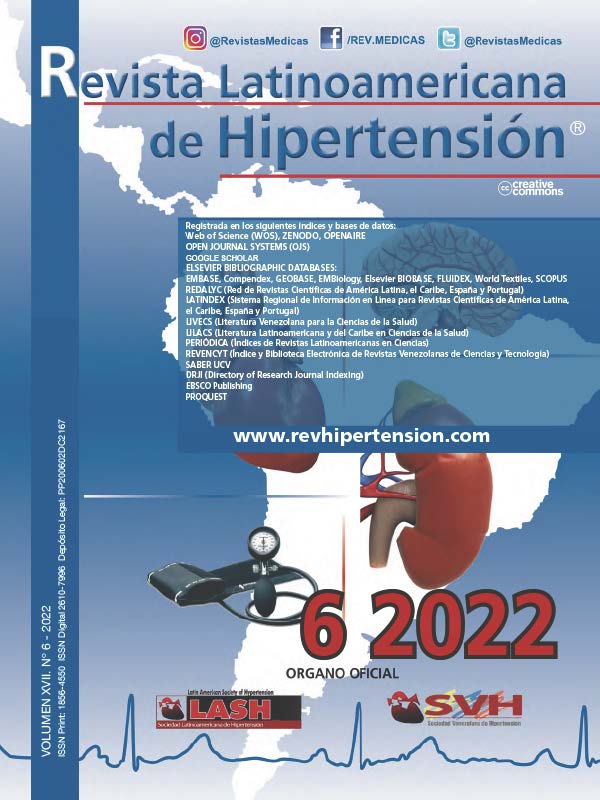Arterial hypertension as a cardiovascular risk factor
Abstract
Hypertension (HT) is a silent and severe clinical entity, highly prevalent at present. The natural development of HT stems from the complex interaction between modifiable and non-modifiable cardiovascular factors; indeed, this disease has a polygenic origin modulated by environmental and lifestyle factors. Thus, vitamin D deficiency, stress, eating habits, smoking, physical inactivity, obesity, and other metabolic diseases stand out as important factors in the development of HT. On the other hand, HT is one of the most important cardiovascular risk factors. A large quantity of clinical evidence supports the relationship between HT and the development of other severe cardiovascular and neurovascular complications. Therefore, the objective of this review is to briefly describe the pathophysiologic mechanisms implicated in the development and progression of HT, and present the clinical-epidemiological evidence that allows the classification of this disorder as a risk factor for a wide range of diseases and cardiovascular events.

